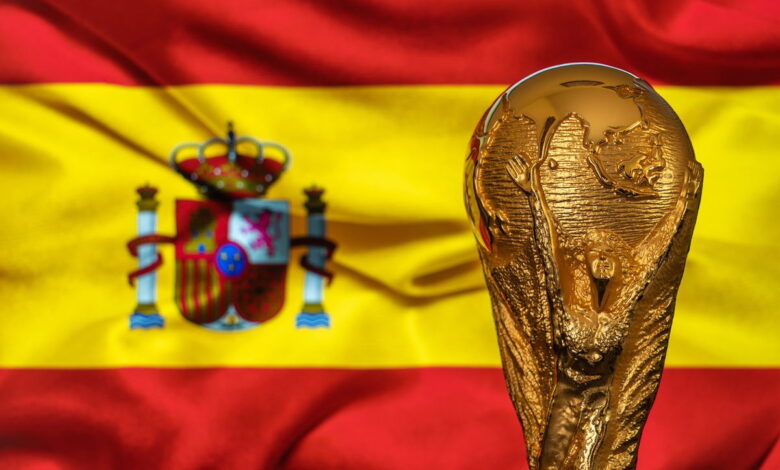Bernabéu vs Camp Nou « Euro Weekly News


The iconic FIFA World Cup trophy set against Spain’s national flag, as the nation gears up for its bid to host the 2030 World Cup final. Will Madrid or Barcelona take centre stage?
Credit : Shutterstock, Fitria Ramli
In a relaxed yet revealing chat on the well-loved programme El Cafelito, Rafael Louzán—the president of the Spanish Football Federation—made it abundantly clear that his heart is set on Madrid’s historic Santiago Bernabéu hosting the World Cup final.
His off-the-cuff remarks have since ignited passionate discussions, especially among those in Catalonia who firmly back Barcelona’s Camp Nou.
Rafael Louzán discusses the Bernabéu’s Bid for the 2030 World Cup final on El Cafelito
During a down-to-earth conversation, Louzán didn’t beat around the bush. He plainly stated, “The final will be at Bernabéu. I want it to be at Bernabéu.”
Louzán’s argument leaned heavily on Madrid’s status as the nation’s capital and the stadium’s notable capacity. However, as the discussion progressed and specifics were probed, his comments naturally gave rise to questions about how the numbers really stack up.
World Cup 2030 stadium capacities: A detailed comparison of Bernabéu and Camp Nou figures
Looking at the facts, the numbers tell an intriguing story. The Bernabéu, even after its recent refurbishment, is slated to offer roughly 81,044 seats—though during the World Cup it might see this figure dip to about 78,300 seats, just under FIFA’s minimum of 80,000 required for the final. By comparison, Barcelona’s Camp Nou is gearing up to host over 105,000 fans, a fact that many see as a clear logistical advantage. This difference in capacity has only deepened the divide between supporters of the two great clubs.
It’s not merely a matter of numbers; regional pride is very much at stake. In Catalonia, many view Louzán’s unwavering support for the Bernabéu as a slight against their own footballing heritage and the formidable credentials of Camp Nou. For local fans, this isn’t just a debate about seating—it’s about honouring tradition and asserting regional identity. As discussions continue in the lead-up to World Cup 2030, it’s clear that this friendly rivalry carries with it a weight of emotion and historical sentiment that goes well beyond statistics.
In the end, while the technical details of seating and capacity are crucial, the passion and pride behind every comment remind us that football is as much about heart as it is about numbers.
Find more news about Sport




